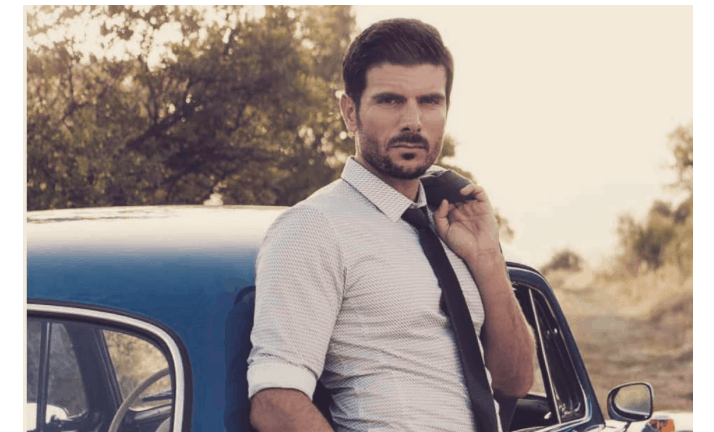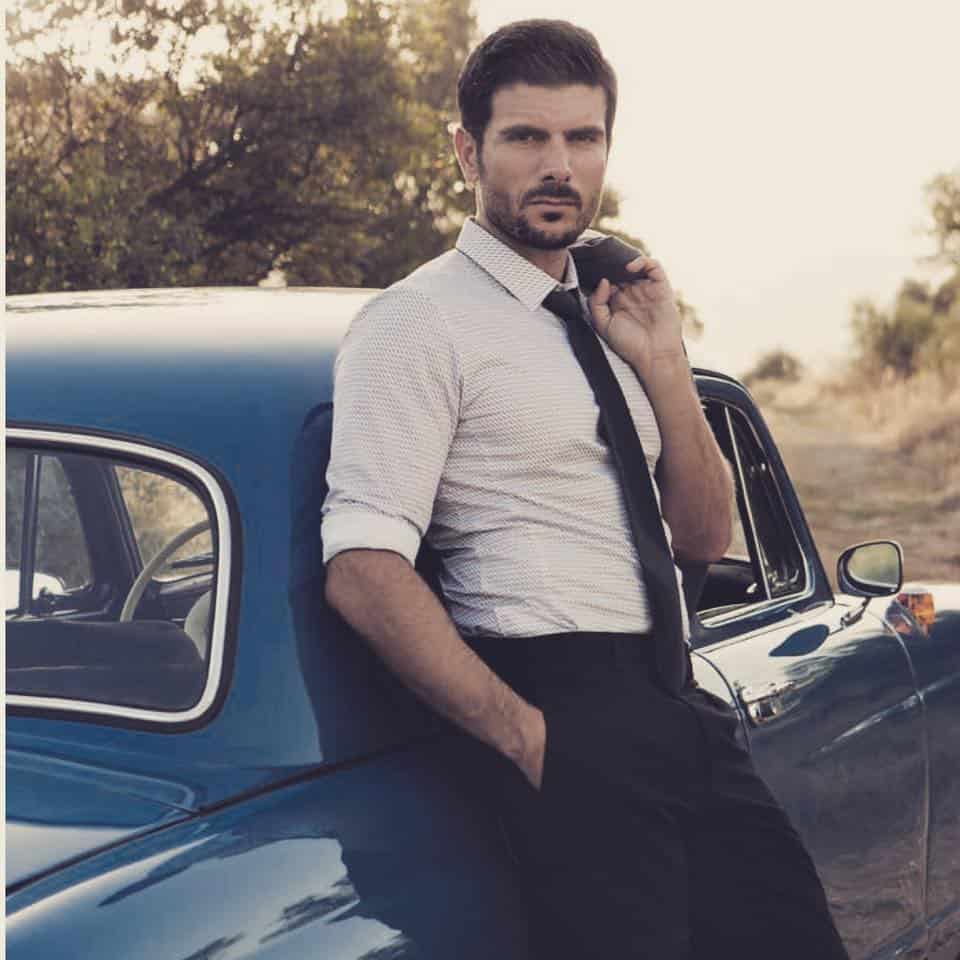
When I first met acclaimed actor/producer Manos Gavras at Zinglee, a glamorous bar-restaurant he co-owns on Kolonaki Square, I was pretty amazed to discover that the famous personality, who has featured in several Hollywood and international films and TV shows as well as being a local star, is also the author of not one but three hugely popular children’s books. Set in ancient Greece. Awarded for being anti-bullying awareness-raising. With a big appeal to anyone aged over six.
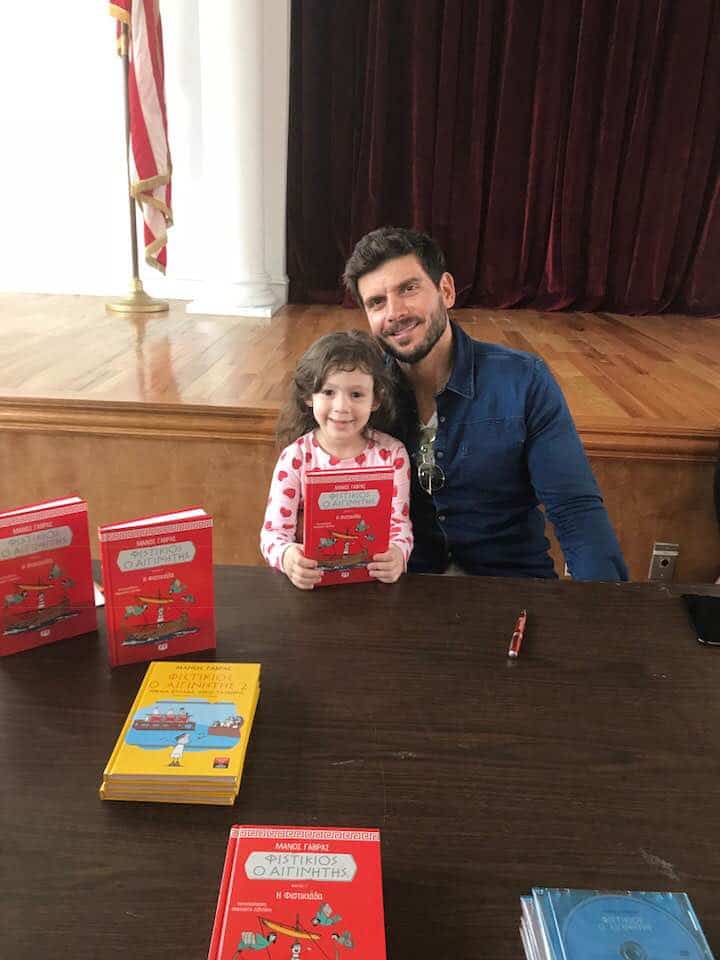
The three (with a fourth on its way) books centre around the witty, imaginative and bright ancient Greek character of Fistikios o Aiginitis. The reader is treated to Gavras’ unique writings of Fistikios’ wild adventures, his existential musings and often uproariously funny and poignant observations about his family, teacher, school mates and humanity and its ways overall.
The books are all brilliantly illustrated by Margarita Zevelaki, who shares Gavras’ passion for ancient Greek mythology as well as his heartfelt yet sometimes bitingly true world view and contagiously off-beat humour. As he says in this interview, their chance meeting in Los Angeles where they were both living at the time, really felt like it was meant to be, as their collaboration on Fistikios o Aiginitis books has been both fortuitous and fun.
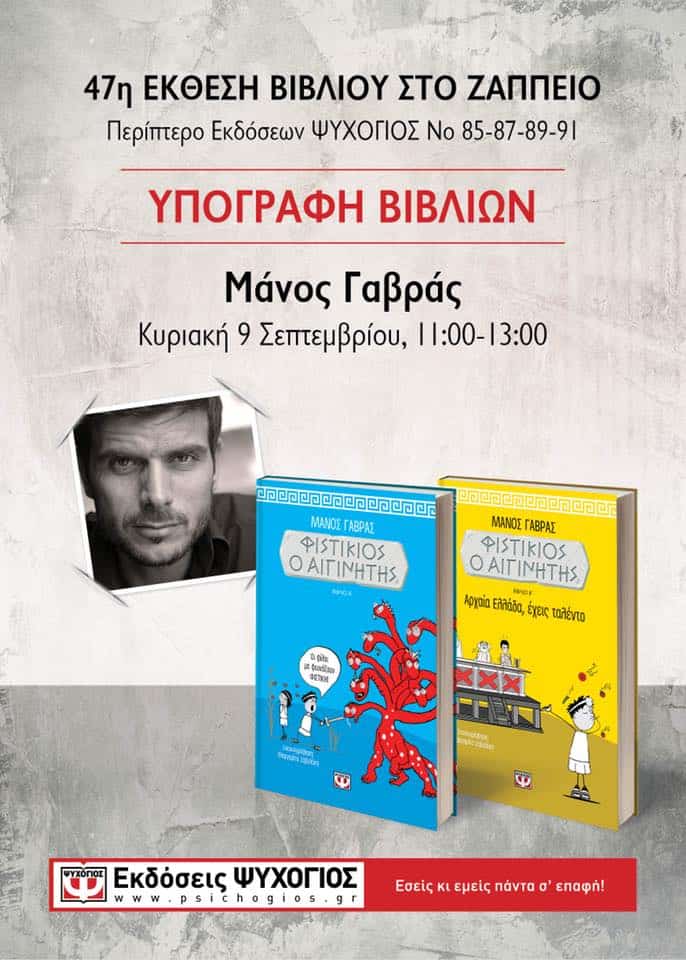
GCT: How did it come about that you as an actor/producer and not even a father – came to write a popular series of children’s books?
Manos Gavras: It started with a script idea for a movie for which I wrote about a young, Cretan shepherd boy called Manolios who wanted to go to Disneyland but couldn’t because of zero resources. It just sat in my drawer until a journalist I told in New York encouraged me to write a book about it. Soon after I pitched it to Livanis publications and they asked me to write for them. But something wasn’t quite right because I had this idea that it should be taking place in ancient Greece but the story as I’d written in was set in modern-day Crete, so I was wating to find the missing link.
And then through a friend, I met Margarita Zevelakis, a super-talented illustrator who’s very knowledgeable about ancient Greek mythology. And I thought, why don’t I set it in ancient Greece, but with a modern feel?!
When I started writing I had no characters in my head, actually, I sat down in a coffee shop with Margarita trying to figure out a name before I even had a character. However, I’m always unorthodox in everything in my life so I just started writing with no strategy. Then Margarita started drawing – we worked closely together. She proposed various characters and illustration styles that I could choose from and we agreed simplicity and a more old-school style is best.
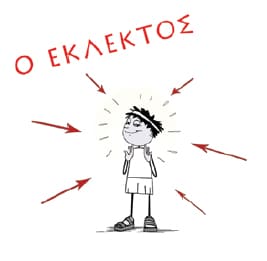
Margarita Zevelakis: I wanted to create something different for ancient Greece because if I put all the colours in, it could have looked gaudy! I preferred to do something minimal and unique, and if you see the images, I think they really stand out.
How has the story evolved from those first few lines that you wrote to what it is now?
MG: Fistikios has a basic premise, which is, keep trying or die! My general message and the one I want to infuse the children’s and adults’ minds with is that there’s nothing wrong with failing. It’s actually a good thing because it makes you stronger. There is always space for improvement.
Basically, my hero constantly fails! Actually, he achieves super-human feats but, in a way that no one ever knows or finds out; he never gets the credit for anything and in the end, he’s always losing. So I think that reading this, kids laugh, sympathise with the main character but in the end, they get the message: you can make fun of yourself – there’s nothing bad about being able to laugh about your situation, no matter how bad it is. And you can become likeable with your problems. You can have issues and still be super-likeable to people.
The books look at many aspects of human behaviour, and how we deal with our issues. And of course, it’s an adventure and it’s funny and Margarita played a major part not just in the illustrations: she was the first person I would call asking her opinion about ideas I had. She often put me back on track or give me great encouragement to keep going.

What kind of research went into the book?
MZ: What Manos wrote is completely original – I’ve never seen anything like what he wrote, I think it’s just the inner voice in his head! For me, I wanted to keep his story historically accurate.
Manos took mythology, mixed it up and made it something completely original, and also, he used a lot of existential concepts, which I find really fascinating – as well as challenging. For example, I had to illustrate the “ancient Greek complex” in the first book! How are you supposed to put a face on a complex? But I worked it out. It’s really funny because in the book everyone has his little complex, and they follow them around everywhere.
(NOTE: I brought my son along for the interview as he loves book)
Question from our six-year-old journalist: Why did you make the book with so much humour?
MG: Because I like to make people laugh, and I think that with laughter you can give messages to people in a much easier and better way. Humour helps us to learn things without even realising it. And also, I like to see people smile in life. If I could make everyone smile I’d be happy…!
*Watch the videos here-

